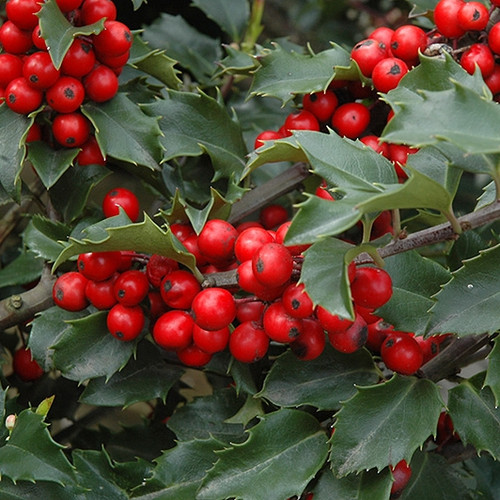| Ilex verticillata 'FARROWBPOP' | USDA Zone: 3-9 |
Berry Poppins® Winterberry is primarily grown for its highly ornamental fruit. It features an abundance of magnificent scarlet berries from mid fall to late winter. It has forest green deciduous foliage. The pointy leaves do not develop any appreciable fall colour.
A compact and showy fall shrub known for its brilliant scarlet-red fruit; sheds leaves early in fall to reveal berries; spreads to form colonies; Mr. Poppins is recommended as pollinator; great in masses and particularly wet sites, needs acidic soil.
Berry Poppins® Winterberry is recommended for the following landscape applications;
- Mass Planting
- Hedges/Screening
- General Garden Use
- Naturalizing And Woodland Gardens
Fall Interest
Winter Interest
Produces Berries
Small or Miniature
Deer resistant
Common Name: Holly, Winterberry, Black Alder
|
Key Feature
|
Light Needs | Landscape Uses |
 |
 |
|
|
|
|
| More About Berry Poppins Winterberry Holly |
| Height: 3-4 ft |
Spread: 3-4 ft |
|
A good addition to mixed borders or cutting gardens. Beautiful for cuts to create holiday displays. Good in groupings and mass plantings, perennial and shrub borders, as a specimen, screen, or hedge. Good show in winter gardens. This plant tolerates wet conditions and may be used in bioswales and rain gardens. One male plant will pollinate up to 5 female plants; plant within 50' of one another to assure good pollination. It is best to avoid pruning winterberry hollies, except to remove whole branches for arrangements and decorating. Regular maintenance pruning or cutting back will impact the number of flowers and the quantity of fruit that the plant sets. Little pruning should be required, though very old branches can be removed in early spring if they are no longer producing vigorous growth. Note that when grown in a container, it may not perform exactly as indicated on the tag - this is to be expected. Also note that when growing plants in outdoor containers and baskets, they may require more frequent waterings than they would in the yard or garden. Be aware that in our climate, most plants cannot be expected to survive the winter if left in containers outdoors, and this plant is no exception. NOTE: Some flowers and plants may be harmful or poisonous to people or pets if touched or ingested. If you require more information before placing an order, please let us know in advance. |











